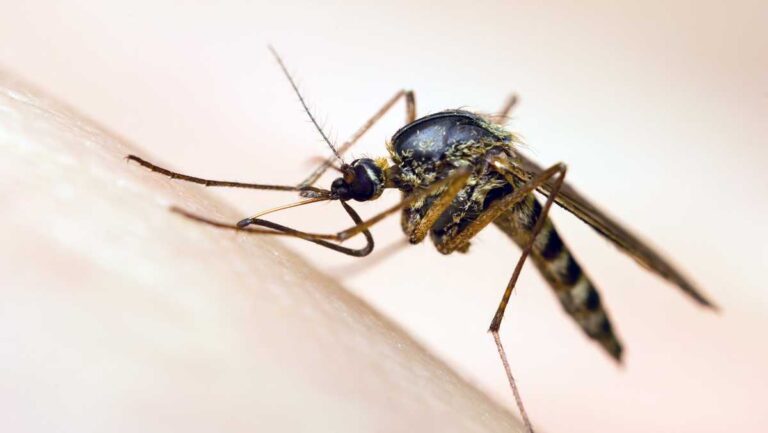There it is. Two more locations in Hamilton County have confirmed West Nile virus in mosquitoes. The Cincinnati Health Department says it has found the virus in mosquito pools in Bond Hill and Madisonville. Springdale recently confirmed West Nile and its Glenview neighborhood, and the city health department says it’s contacting everyone within a mile of where the virus was found. It’s just letting people know how to protect themselves. Recent confirmed human cases in Cincinnati
Health Department: West Nile virus detected in mosquito samples in Cincinnati
Health officials said West Nile virus has been detected in mosquitoes in the Cincinnati area. Through routine and ongoing surveillance for mosquito-borne diseases, the Cincinnati Health Department said it has collected mosquito samples that tested positive for West Nile virus in Bond Hill and Madisonville. Video above: Springdale health officials say West Nile virus identified in mosquito clusters The Health Department said these samples are the first positive results this summer. The Department’s Technical Environmental Services team has been contacting all residents within a half-mile and one-mile radius to notify them that West Nile virus-positive mosquitoes have been found in their area and provide information on how to protect themselves. According to the Cincinnati Health Department, there were 31 West Nile virus-positive mosquito clusters in Cincinnati last year, well above the annual average of three positive clusters. However, no human infections were diagnosed. The last confirmed case of West Nile virus infection in a Cincinnati resident was in 2012. “Any time we find West Nile virus in a local mosquito population, we know it’s a risk of transmission to humans, and we want to prevent that,” Cincinnati Health Commissioner Dr. Grant Massman said in a statement. “We want to encourage Cincinnati-area residents to take simple precautions to protect themselves, their families, and their neighbors.” Health officials recommend the following preventative measures: Avoid being outdoors during times when mosquitoes are active (especially late in the evening, dusk to dawn, and early morning). Apply an EPA-registered insect repellent containing DEET, picaridin, IR3535, oil of lemon eucalyptus, or paramenthanediol to clothing and exposed skin. Cover exposed skin by wearing a hat, long sleeves, and long pants in areas where mosquitoes are particularly active, such as wooded areas. Install or repair screens on windows and doors to prevent mosquitoes from getting inside your home. Here are some things you can do to prevent mosquitoes from breeding near your home and to protect yourself from mosquito bites: Eliminate sources of puddles in your yard, such as saucers under flower pots, children’s toys, wheelbarrows, boats, tires and waterlogs. Change water in bird baths and outdoor pet dishes at least once a week to remove stagnant water. Refill water tanks. Cycle, clean and chlorine pools and remove pool water from pool covers. Empty and turn plastic wading pools and kiddie pools when not in use. Keep gutters clean to prevent pools. For questions or more information about West Nile Virus and mosquitoes, contact the Cincinnati Health Department’s Technical and Environmental Services Division at 513-352-2922.
Health officials say the West Nile virus has been detected in mosquitoes in the Cincinnati area.
The Cincinnati Health Department announced that through routine and ongoing surveillance for mosquito-borne diseases, mosquito samples taken in Bond Hill and Madisonville tested positive for West Nile virus.
Video above: Springdale health officials announce West Nile virus identified in mosquito populations
The health department said the sample is the first positive result this summer.
The department’s Technical Environmental Services team is contacting all residents within approximately a half-mile to one-mile radius to let them know that mosquitoes that have tested positive for West Nile virus have been found in their area and to provide information on how to protect themselves.
According to the CHD, there were 31 West Nile virus-positive mosquito swarms in Cincinnati last year, well above the annual average of three, but no human infections have been diagnosed. The last time a Cincinnati resident was infected with West Nile virus was in 2012.
“Any time we find West Nile virus in local mosquitoes, we know there is a risk of it being transmitted to humans, and we want to prevent that,” Cincinnati Health Commissioner Dr. Grant Massman said in a statement. “We want to encourage Cincinnati-area residents to take simple precautions to protect themselves, their families and their neighbors.”
Health authorities recommend the following precautions:
- Avoid being outdoors during times when mosquitoes are most active, especially in the late afternoon, dusk to dawn, and early morning.
- Apply an EPA-registered insect repellent containing DEET, picaridin, IR3535, oil of lemon eucalyptus, or paramenthanediol to clothing and exposed skin.
- In wooded areas and other areas where mosquitoes are particularly active, cover exposed skin by wearing a hat, long sleeves, and long pants.
- Install or repair screens on windows and doors to prevent mosquitoes from entering your home.
There are several things you can do to prevent mosquitoes from breeding near your home and to help protect people from mosquito bites.
- Remove any items that may cause puddles in your garden, such as saucers under flower pots, children’s toys, wheelbarrows, boats, tyres and puddles.
- Change the water in bird baths and outdoor pet dishes at least weekly to eliminate stagnant water.
- Keep your pool circulated, clean, and chlorinated, and remove any standing water from your pool cover.
- Empty and turn plastic wading pools and kiddie pools when not in use.
- Keep drains clear to prevent water from accumulating.
For questions or more information regarding West Nile Virus and mosquitoes, please contact the Cincinnati Health Department’s Technical and Environmental Services Division at 513-352-2922.



